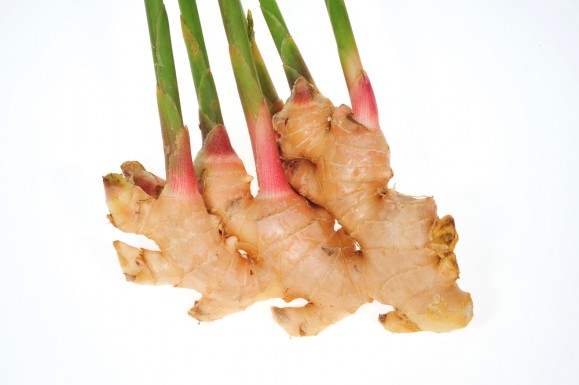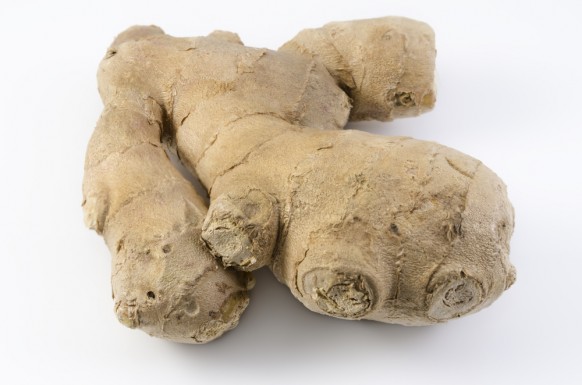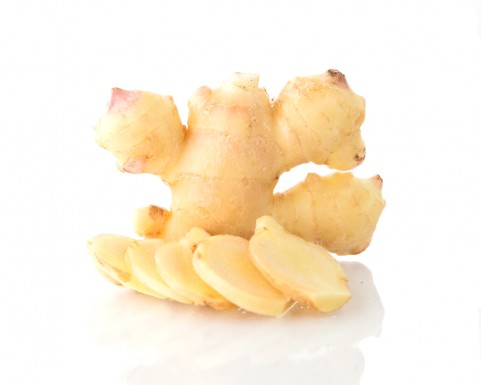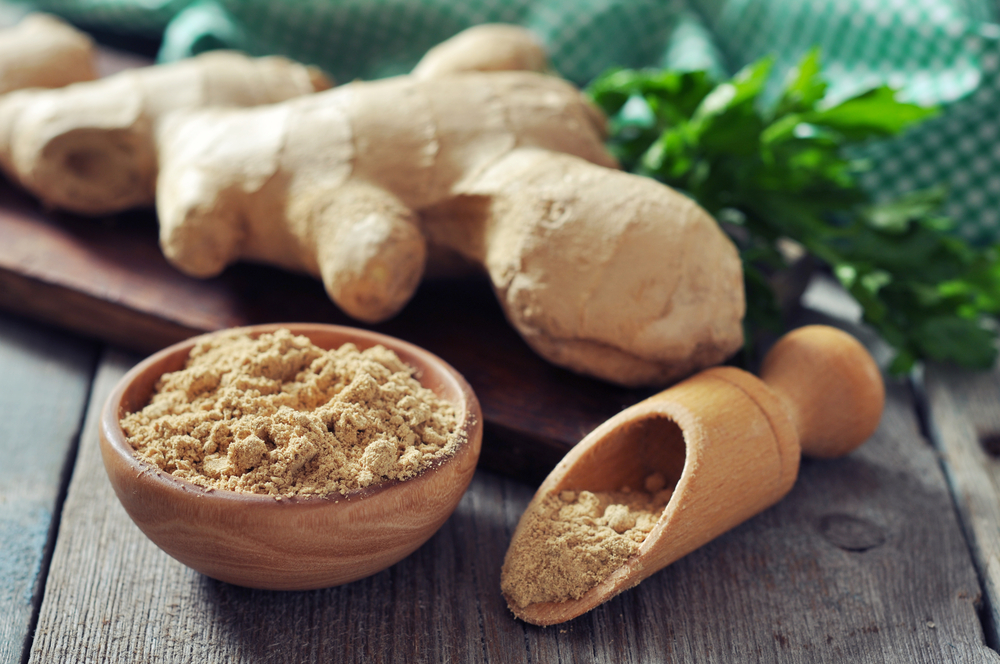Whether you prefer your ginger in candy, tea, or your food, there are plenty of ways to integrate this incredible herb into your life.
Ginger is the rhizome – or root – of the ginger plant, and has a bulbous shape that in its fresh form looks like a bunch of small potatoes smushed together. Its outer skin is light brown, and the inner flesh can range from milky white to a pale yellow color. It has a distinctive aaroma and a warm, spicy taste that is part of many cuisines from around the world. and it is available in many forms to ingest.
Ginger has analgesic and anti-inflammatory effects that are well-documented. For instance, it can help soothe menstrual cramps, arthritis, and sore muscles. Ginger also contains compounds with pharmacological properties similar to popular NSAIDS (Tylenol, ibuprofen). In A 2015 study exercise in order to induce muscle damage. 5 days before this, they were supplemented daily with either placebo or 5 grams of ginger. They constantly measured biomarkers for muscle damage and delayed onset muscle soreness (DOMS) daily for 4 days after the exercise protocol. They found that 4 grams of ginger supplementation can be used to acceleration recovery of muscle strength following bouts of intense exercise.
Digestion

Ginger has been proven to soothe nausea, whether it’s caused by pregnancy morning sickness or motion sickness. Centuries ago before the invention of Dramamine, fishermen used to chew on ginger while they were at sea to help ease their symptoms. Ginger tea, or freshly brewed ginger ale both help to quell your stomach.
In 1991 a double-blind randomized trial the efficacy of powdered root of ginger versus placebo in hyperemesis gravid arum, an extreme form of morning sickness. 30 women were asked to take either 250 mg of ginger or placebo for four days, followed by a two day wash out period. A different medication was given during a subsequesm\nt 4-day period. Women were asked to rate their preference for anti-emetic based on a scoring system. 70.4% of the women preferred the period in which the ginger, as opposed to the alternative medicine was given. Additionally, the ginger treatment group reported a greater relief of their morning-sickness symptoms than did the placebo group. No side effects were observed in any of the test subjects. They concluded that powdered root of ginger was more effective in 1 gram doses daily for four days than placebo in diminishing the symptoms of morning sickness.
Cancer

Ginger has also been show to inhibit the reproduction of abnormal ovarian cancer cells. This study identified the effects of Gingerols a phytonutrient that can be extracted from ginger. When researchers exposed gingerols to several ovarian cancer cell lines, they all died. However, traditional chemotherapeutic drugs sometimes cause cancer cells to develop resistance to the effects of the drugs. Gingerol is unique in that it does not cause resistance in cancer cells. Incorporating ginger into your diet can be part of your overall strategy to decrease your chances of developing ovarian cancer.
Immunity

It can also help boost your immune system. The warming properties of ginger helps promote sweating, which leads to a protection response. Demicidin is an anti-microbial protein, and is secreted by eccrine sweat glands onto the surface of the skin as part of your innate immune system.
In Asian herbal medicine, Ginger’s (Sheng Jiang) warming quality makes it a valuable herb for “releasing the exteriror” which is a way of promoting gentle sweating and dispersing the chills of a cold. Chinese medicine also recognizes the health benenfits of Ginger for upper digestive discomfort including nausea and vomiting for any reason. The ginger that comes with your sushi is a palate cleanser, but also helps out if the fish isn’t the freshest.
Here are a couple of easy ways to integrate ginger into your meals.
- When you’re blanching your meat, throw some ginger into the water for some extra flavor and health-enhancing benefits.
- When you’re making stir-fry, add in some grated ginger, along with your usual garlic, soy sauce and cilantro, to closely mimic those Asian taste profiles.
- Put 3 slices of chopped ginger in a cup of hot water for a freshly brewed cup of comforting ginger tea. Add some honey for taste if the ginger provides too much of a kick.
- Add a piece of ginger to your morning smootie or juice to energetically “warm” it up and make it easier to digest.




